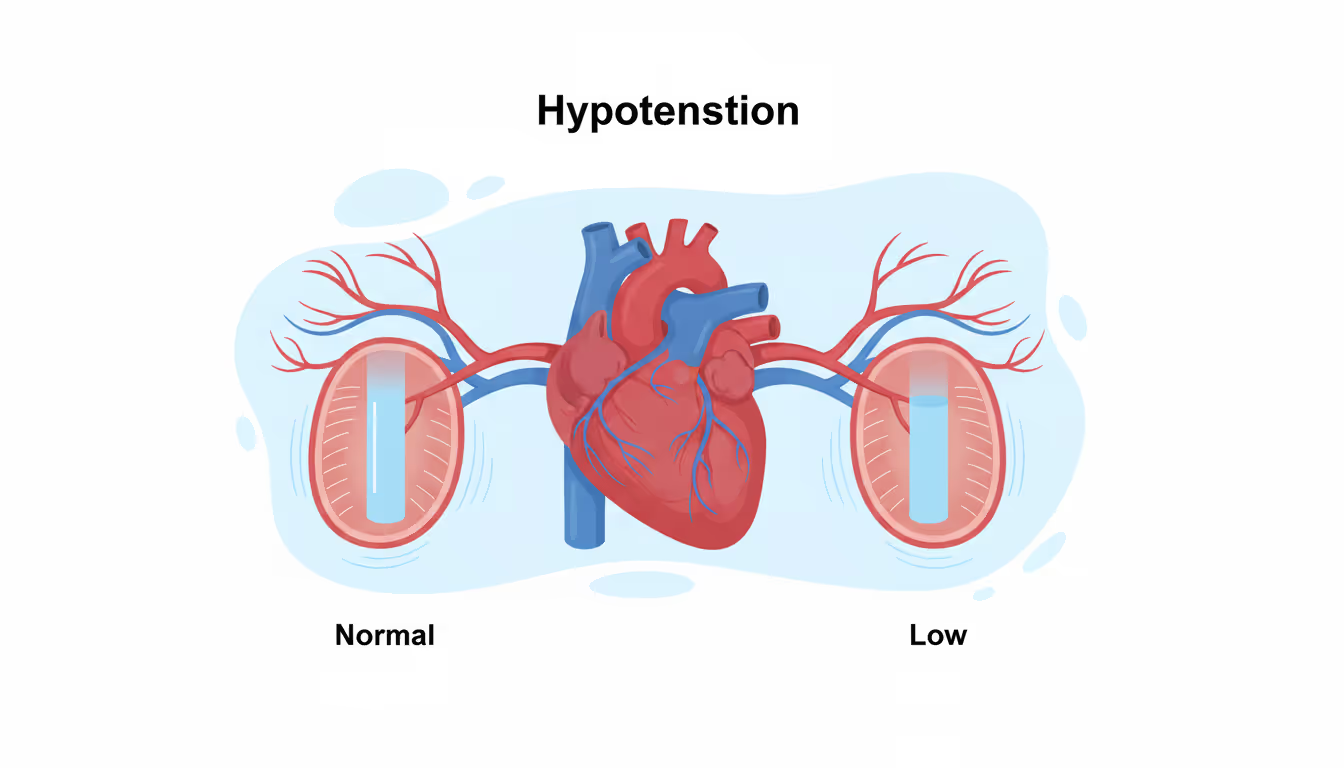
Hypotension refers to a blood pressure level that falls below what is considered normal for a person, depending on various factors like activity, age, medication, and health conditions. It is essentially the opposite of hypertension, which is characterized by unusually high blood pressure. Since blood pressure can fluctuate significantly, hypotension is somewhat subjective. This condition can arise from both neurological and non-neurological causes, as well as certain medications.Neurological causes of low blood pressure might include a sudden change in body position, such as standing up quickly, certain neurological disorders, or even a sudden fright. Non-neurological causes can include bleeding, infections, dehydration, adrenal insufficiency, pregnancy, long periods of bed rest, toxic shock syndrome, and allergic reactions. Medications that can lead to low blood pressure include those for lowering blood pressure itself, diuretics, heart medications (particularly calcium channel blockers like nifedipine and beta-blockers like propranolol), antidepressants, and alcohol. The term "hypotension" is derived from the Greek word "hypo," meaning "under," and the Latin "tensio," which means "to stretch." In French, "la tension" refers to blood pressure.




